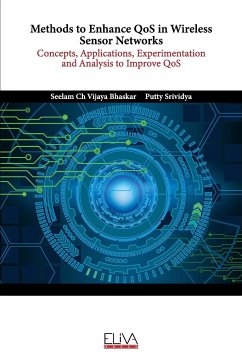
Mixed-Criticality Industrial Wireless Networks

PAYBACK Punkte
16 °P sammeln!
This open access book introduces how to manage important tasks in industrial wireless networks. Important tasks must be completed on time and with guaranteed quality; that is the consensus reached by system designers and users. However, for too long, important tasks have often been given unnecessary urgency, and people intuitively believe that important tasks should be executedfirst so that their performance can be guaranteed. Actually, in most cases, their performance can be guaranteed even if they are executed later, and the "early" resources can be utilized for other, more urgent tasks. The...
This open access book introduces how to manage important tasks in industrial wireless networks. Important tasks must be completed on time and with guaranteed quality; that is the consensus reached by system designers and users. However, for too long, important tasks have often been given unnecessary urgency, and people intuitively believe that important tasks should be executedfirst so that their performance can be guaranteed. Actually, in most cases, their performance can be guaranteed even if they are executed later, and the "early" resources can be utilized for other, more urgent tasks. Therefore, confusing importance with urgency hinders the proper use of system resources. In 2007, mixed criticality was proposed to indicate that a system may contain tasks of various importance levels. Since then, system designers and users have distinguished between importance and urgency. In the industrial field, due to the harsh environment they operate in, industrial wireless networks' quality of service (QoS) has always been a bottleneck restricting their applications. Therefore, this book introduces criticality to label important data, which is then allocated more transmission resources, ensuring that important data's QoS requirements can be met to the extent possible. To help readers understand how to apply mixed-criticality data to industrial wireless networks, the content is divided into three parts. First, we introduce how to integrate the model of mixed-criticality data into industrial wireless networks. Second, we explain how to analyze the schedulability of mixed-criticality data under existing scheduling algorithms. Third, we present a range of novel scheduling algorithms for mixed-criticality data. If you want to improve the QoS of industrial wireless networks, this book is for you.














